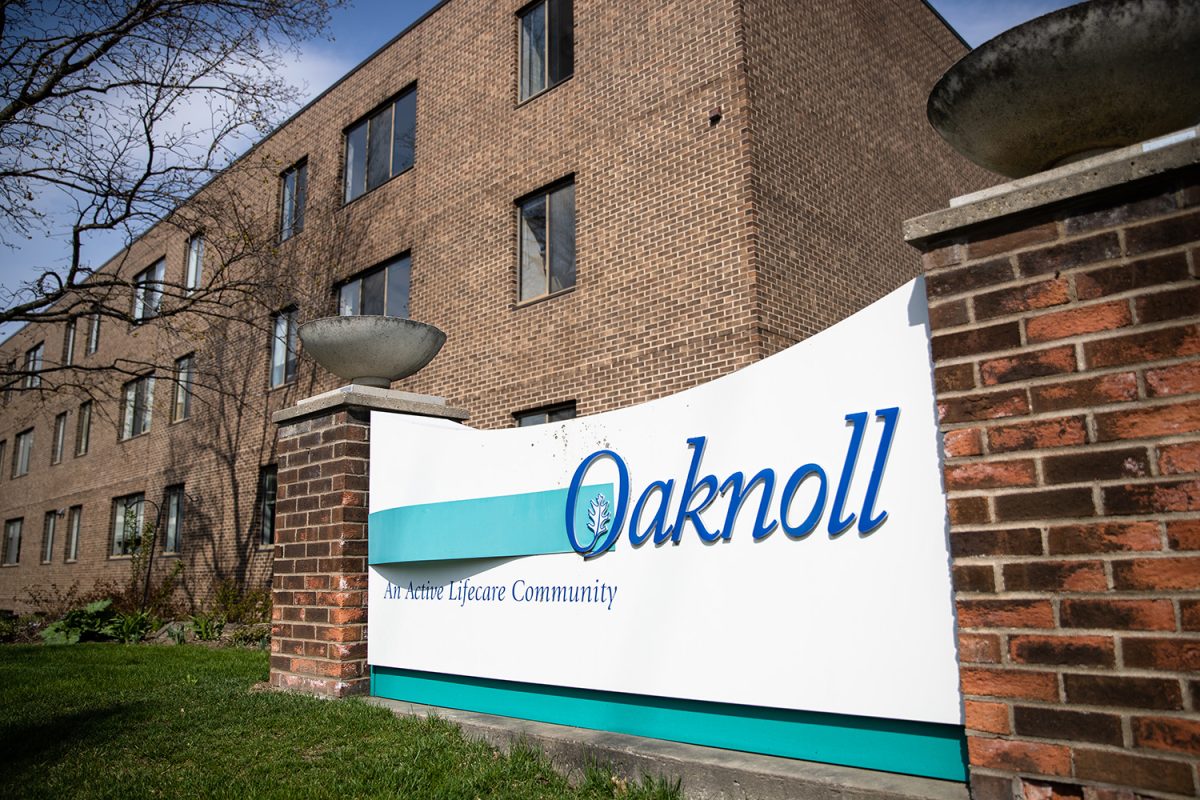According to the U.S. Census Bureau’s projections, by 2030, 22.5 percent of Iowa’s population is expected to be aged 65 and over.
In light of the state’s aging population, Oaknoll, a nonprofit LifeCare retirement community, is constructing an expansion project in Iowa City. Oaknoll was founded in 1966 and has been recognized with various awards, such as its five-star quality rating from the Centers for Medicare and Medicaid Services for 14 consecutive years.
The new project, the Oaknoll Small House, will be located at 1201 W. Benton St. and is slated for completion in the summer of 2025. The Oaknoll Small House will be equipped with 12 private rooms, a four-season room, and a backyard to transform the traditional idea of an enclosed nursing home model. This will be Oaknoll’s first project with a residential neighborhood model.
“The small house is innovative because it is a revolutionary approach to senior care and elder housing,” Amber Jedlicka, Oaknoll director of health services, said. “We’re creating a home-like community with personalized spaces empowering our residents. It’s built to resemble a traditional residential neighborhood.”
Oaknoll Marketing Director Kim Haring pointed to another unique aspect of the small house: the sustainable design.
“It’s being built to be sustainable. So, we’ve got solar panels on the roof, we’ve got pools that we drilled that are geothermal underground to bring up the warm water to heat the building, too,” she said.
Taylor Wheeler, Oaknoll’s assistant director of dining services, said the Oaknoll team decided to use the home-like model.
“A few of us went to Ohio to see this happening, how they have small house units all together, and kind of envision how we could bring this here to our community,” he said. “One of the challenges I think we’re working through is what type of population we’re going to put over there, and then the staffing.”
Jedlicka expanded on the issue, explaining that Oaknoll was no exception to the nationwide nursing staff shortage inflamed by the pandemic.
“We’re hoping to appeal to those younger generations and the nurses that are out there that want to be a part of something special, something different,” she said. “We want to draw those medical professionals into our environment to help us provide this awesome care for the elderly in the Iowa City area.”
RELATED: Growing Iowa senior population places weight on younger generations.
With Iowa City’s aging population, residents may wonder if such expansions will become increasingly common.
Iowa City Senior Center Program Specialist Michaelle Buhman spoke on how the senior center was no exception to the statewide trend of a growing aging population.
“The overall demographics of the aging population is substantially growing,” she said. “More people are moving to the Iowa City, Johnson County area because they have access to different resources that are unique to Iowa City, mostly access to health care.”
Buhman said the growing problems Iowa City’s elderly population faces include food insecurity, homelessness, and health-related issues such as Parkinson’s disease. The Senior Center has been adjusting to these trends by providing discounts for programs for people with limited incomes and increasing support for those with Parkinson’s disease.
Above all, Buhman emphasized the need for the elderly to remain socially connected.
“There is a growing need for opportunities for older adults to connect with each other. People become very isolated as they get older,” she said. “If you don’t go to work, if you’re not involved in a religious organization of some kind, creating those new relationships as people are moving into the community could be challenging.”



